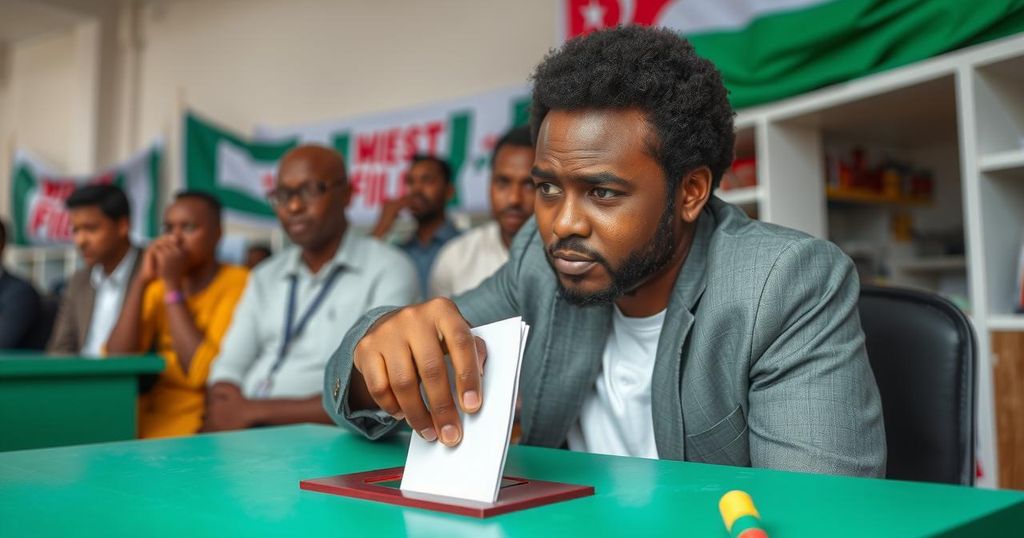World news
2024 ELECTIONS, ABDALLAH SAMBI, AFRICA, AFRICA CENTER FOR STRATEGIC STUDIES, AHMED, AP, AP AFRICA NEWS, ASSOUMANI, AZ, AZALI ASSOUMANI, COMOROS, CONVENTION FOR THE RENEWAL OF THE COMOROS, ELECTIONS, EUROPE, FRANCE, GOVERNANCE, GOVERNMENT, GRANDE COMORE, INDIAN OCEAN, JUWA, MADAGASCAR, MAYOTTE, MIT, MITSOUDJÉ, PRESIDENTIAL ELECTION, VOTER TURNOUT
Stella Nguyen
0 Comments
Comoros Parliamentary Election Overshadowed by Opposition Boycott
Comoros held a parliamentary election on Sunday, boycotted by key opposition parties who accused President Azali Assoumani of authoritarianism and questioned the electoral integrity. With about 330,000 registered voters expected to participate, low turnout was anticipated due to public disenchantment with the democratic process. Assoumani’s administration has faced ongoing criticism for electoral fraud and political repression, compounded by a history of military coups since independence in 1975.
On Sunday, Comoros conducted a parliamentary election marked by a boycott from several opposition parties, which criticized President Azali Assoumani’s administration for increasingly authoritarian practices and questioned the electoral integrity. The one-day event was to fill 33 legislative seats, with results to be announced the following week, as stated by the national electoral commission.
Approximately 330,000 of Comoros’ 850,000 population were registered to vote, though opposition leaders anticipated low turnout in light of public disillusionment with the electoral process. In the last parliamentary election held in 2020, Assoumani’s party secured 20 out of the 24 contested seats. Casting his vote on Grande Comore, Assoumani faced accusations from the opposition that both the previous 2020 parliamentary election and his presidential election last year were fraudulent, provoking violent protests.
The Juwa Party, led by former President Ahmed Abdallah Sambi, prominently boycotted the recent vote, echoing their non-participation in the 2020 elections. The Comoros archipelago, composed of three islands, has a turbulent political history marked by military coups since its independence from France in 1975; Assoumani initially took power through a coup in 1999.
After serving a term until 2006, Assoumani returned to the presidency in 2016 and has since secured three consecutive elections. His presidency received criticism for political repression and circumventing term limits through constitutional changes enacted in 2018, which undermined an earlier agreement that rotated presidential power among the islands. Notably, the voting proceeded despite the impending threat of Tropical Cyclone Dikeledi impacting the region.
Comoros, located in the Indian Ocean near Madagascar, has experienced a tumultuous political landscape since gaining independence from France in 1975, including numerous military coups. President Azali Assoumani, a former military officer, initially seized power in 1999 and has since maintained a contentious and often criticized grip on the presidency, having altered the constitution to extend his rule. His administration has faced accusations of suppressing democratic processes and engaging in fraudulent elections, leading to widespread dissatisfaction among the populace and political opposition.
The parliamentary election in Comoros serves as a critical juncture in the nation’s ongoing struggle for democratic governance amidst accusations of authoritarianism and electoral fraud. The significant boycott from opposition parties reflects deep-rooted discontent within the political landscape, underscoring challenges faced by the electoral process in Comoros. The outcome of this election will shed light on the current state of democracy and political participation in the archipelago, while the looming cyclone adds an unexpected environmental challenge to the electoral exercise.
Original Source: www.wral.com




Post Comment